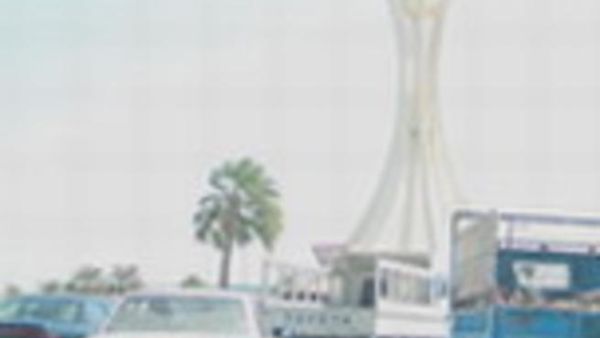The Bahrain Monetary Agency (BMA) on Wednesday unveiled a new tariff structure for third party motor insurance. The new structure is aimed at encouraging safe driving by making it mandatory for insurance firms to extend discounts to good drivers.
However, companies will be able to charge higher premiums for bad driving, under clearly stipulated provisions contained within the new tariff structure, which comes into effect the day after its publication in the Official Gazette.
The new structure was earlier approved by the Cabinet, in its meeting on 17th October 2004.
The BMA has been reviewing the third party motor tariffs, last set in 1995, and has recognized the need for the development of a new structure, said Mr. Anwar Khalifa Al Sadah, Executive Director, Financial Institutions Supervision, at the BMA, during a press conference held today to unveil the new structure.
The review was necessitated for a number of reasons, including complaints from policyholders about rising premium costs and failure of companies to distinguish between good and bad drivers, as well as complaints from insurance firms about the rising costs of vehicle repairs and the increasing number of motor accidents, particularly those involving fatalities and personal injury.
The earlier structure also did not take into account a number of other factors, including the nature of performance cars; age of drivers; driving experience of a policyholder; or the claims history of a driver.
“The BMA, since it assumed responsibility for regulating the insurance industry, has been paying considerable attention to the issue of third party motor insurance because it affects such a large section of the public,” said Mr. Al Sadah.
Consultations took place over a period of two years with various stakeholders, including the industry, represented by the Bahrain Insurance Association (BIA); the public, represented by the Consumer Protection Society and Bahrain Transparency Society and the relevant committee of Parliament’s Chamber of Representatives; as well as the Traffic & Licensing Directorate. Two public hearings were also held as part of the consultation process.
“We were able to iron out all concerns and areas of dispute and agree on a structure that is fair to all concerned parties,” said Mr. Al Sadah.
The new structure sets tariffs for various categories of vehicles, such as private cars, taxis, hire buses, as well as learners’ cars. The tariffs, which also take into account vehicle capacity, serve as the base on which discounts or additional loadings are calculated.
For private cars, for example, the tariffs begin at BD53 for vehicles of up to 1400cc capacity, and go up to BD83 for vehicles of 3651cc or more.
The new structure rewards good drivers by instituting mandatory discounts for claims-free driving. Drivers will be entitled to a discount of 5% for one year of claims-free driving; 10% for two years; 15% for three years and 20% for four years or more.
Drivers will be able to use their existing driving record, to claim discounts, once the new tariffs come into effect. Insurance companies, on their part, are being allowed to impose, on voluntary basis, additional charges for bad driving.
Companies will be able to load premiums by 25% for the first property damage or bodily injury claims and 50% and 100% for the second and third such claims, respectively. A fatality claim could attract a loading of 100%.
Companies can also raise premiums for high performance (sports) cars and for novice drivers.
The ceiling on additional loading of premiums has been set at 100% and the additional charges will be valid for one underwriting year. If no claims are incurred during that year, companies are required to revert to the base premium from the following underwriting year.
Mr. Tawfiq Shehab, Director, Insurance Supervision, at the BMA, said the new system will also prevent insurance companies from forming a consortium against consumers.
The new system also gives drivers the right to change insurance firms, if they wish. The new tariff structure is based on technical standards and accident statistics of Bahrain in recent years, with the overall aim of encouraging safe driving, Mr. Shehab pointed out.
The tariffs are more or less in line with those prevailing in other GCC states. However, they are not comparable on the basis of price alone, due to the differences in insurance laws and scope of liability, since other GCC states are applying the Shari’a concept of blood money. In Bahrain, any awards for personal injury or death as made by the civil courts.








